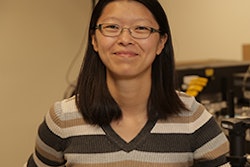Raised in Hoboken, New Jersey, Dr. Yomaira Figueroa is a frst generation high school and college graduate. Now an assistant professor of global diaspora studies at Michigan State University, she finds the cultural shift in academia encouraging as more first-generation students continue their education and become professors.
Colleges and universities have become “a more welcoming place for folks like me” she says, “because other folks like me have paved the way.”
Figueroa mentors students and junior faculty like her “from a place of knowing.” In addition, she founded the MUSE (Mentoring Underrepresented Scholars in English) Scholars Program, a four-day experience for prospective graduate students to help recruit and retain a diverse cohort. She’s also a past winner of Michigan State University’s Faculty Leadership Award and Inspirational Woman of the Year Award for her Women of Color Initiative, which organizes events for women of color on campus.
With the influx of new perspectives, scholarship has changed, Figueroa says. Academics from working class backgrounds ask different questions that others might not explore, and, as a result, “the work becomes really rigorous and really generous.”
“For me, it’s really about how do we approach the questions that we have,” she notes. “There are some things people can understand because they’ve lived it. Other people can understand because they’ve studied it. But it’s not the same.”
Figueroa’s own life experiences inform her scholarship. Motivated by her family roots, she originally wanted to focus her studies on the Puerto Rican diaspora. But her graduate education in ethnic studies at the University of California Berkeley broadened her scope, exposing her to many histories of people of color in the United States.
She found that “when you put them into relationship with one another, you get this really powerful view of the human experience.”




















